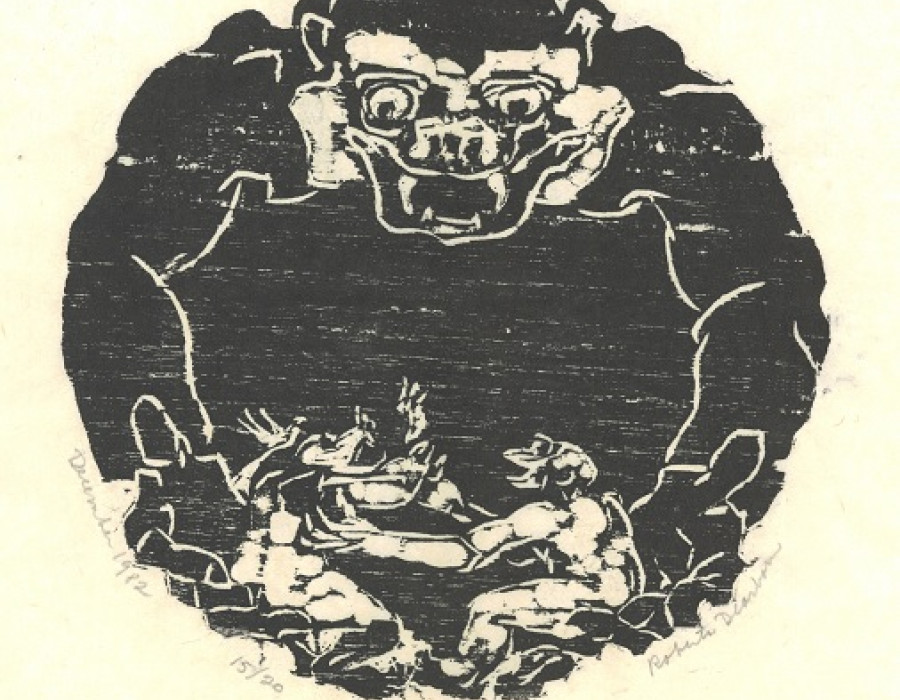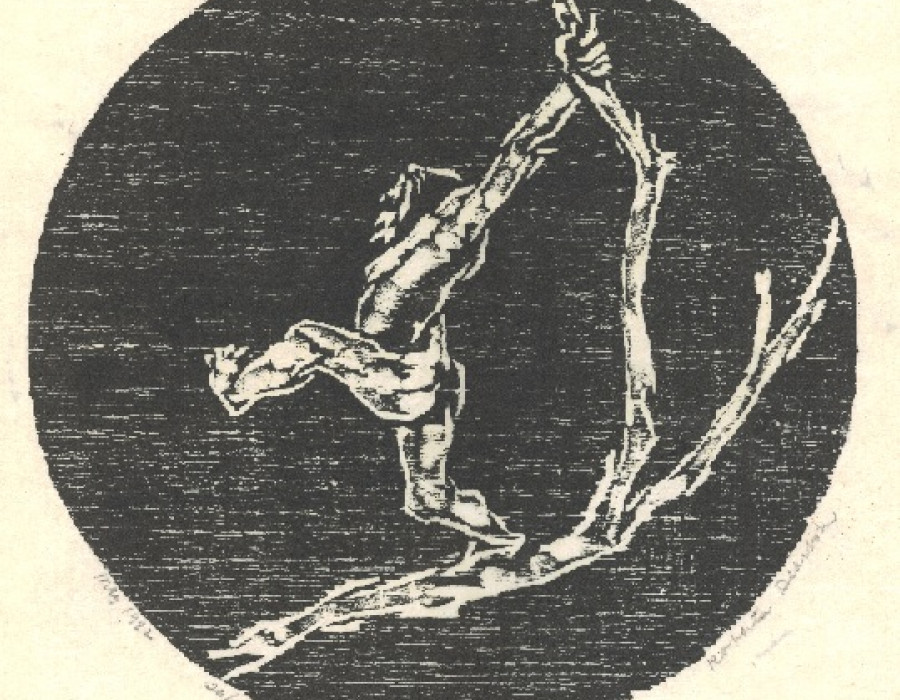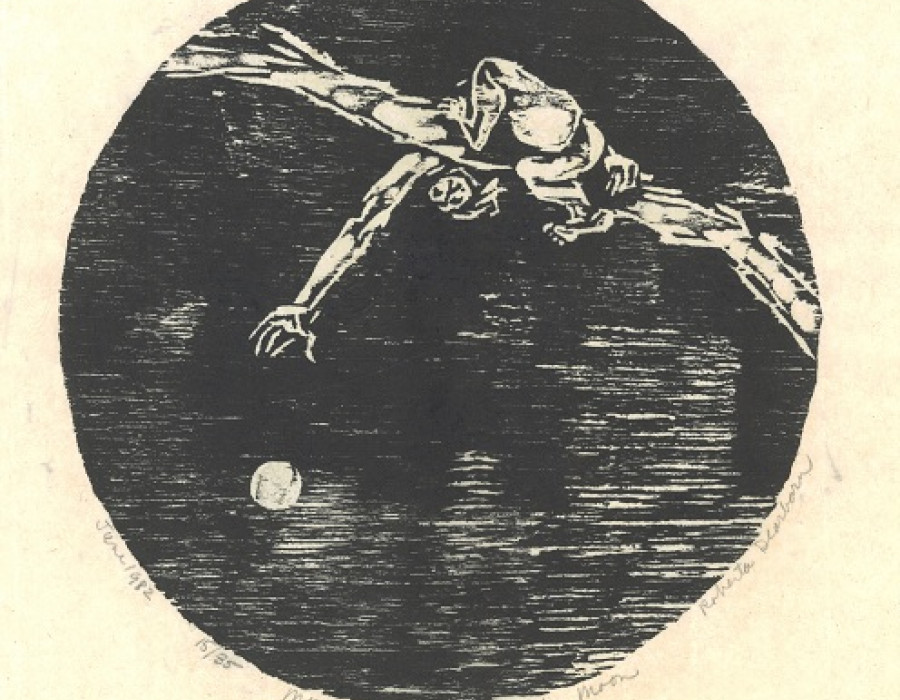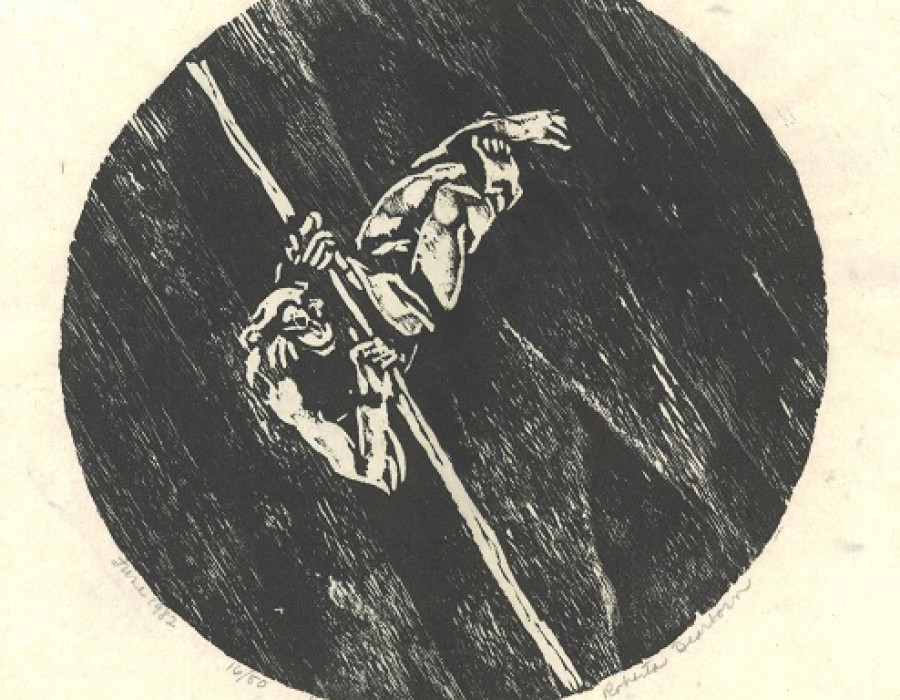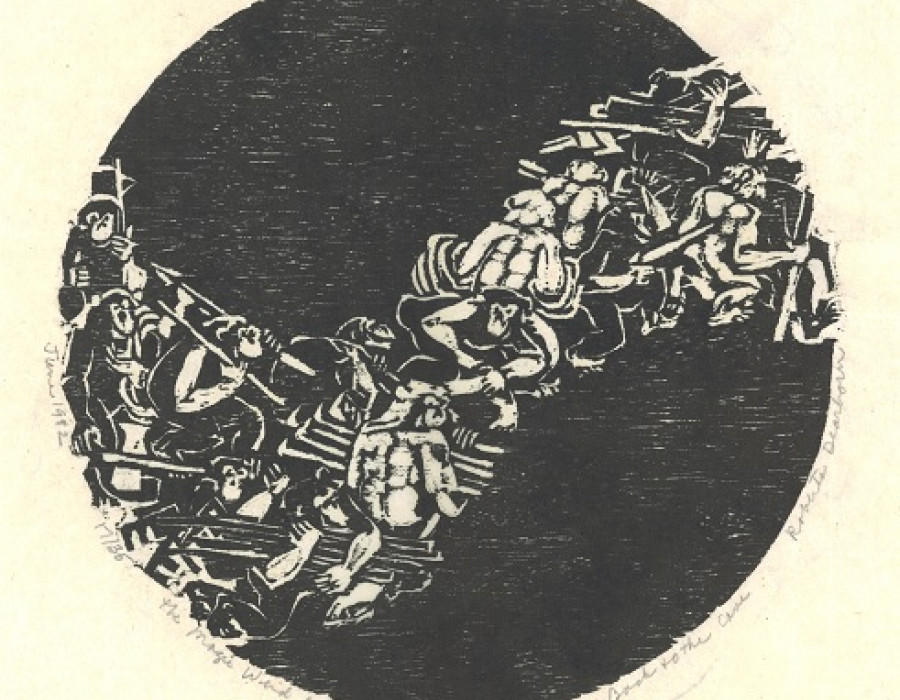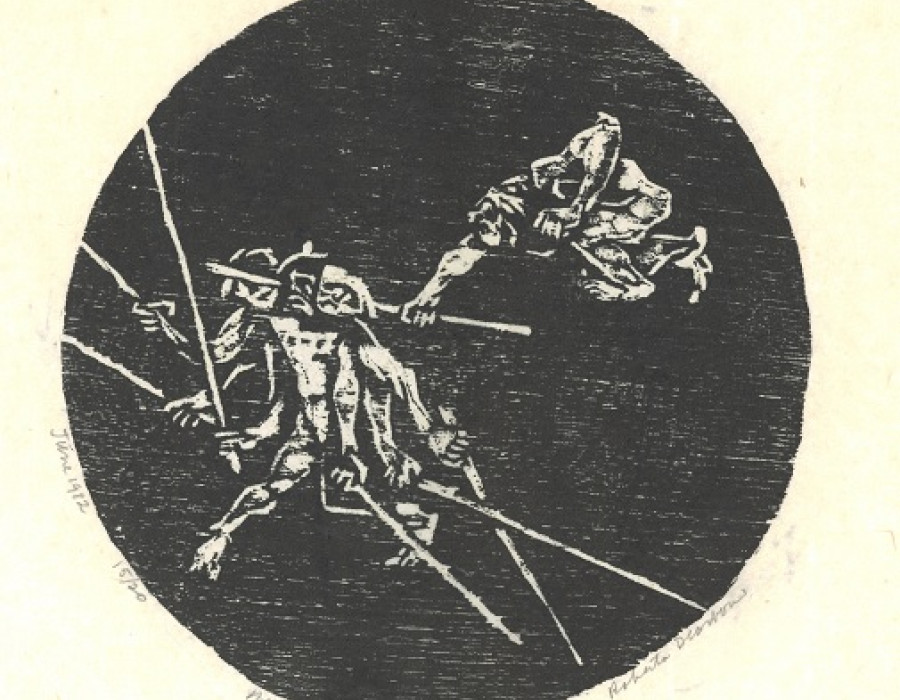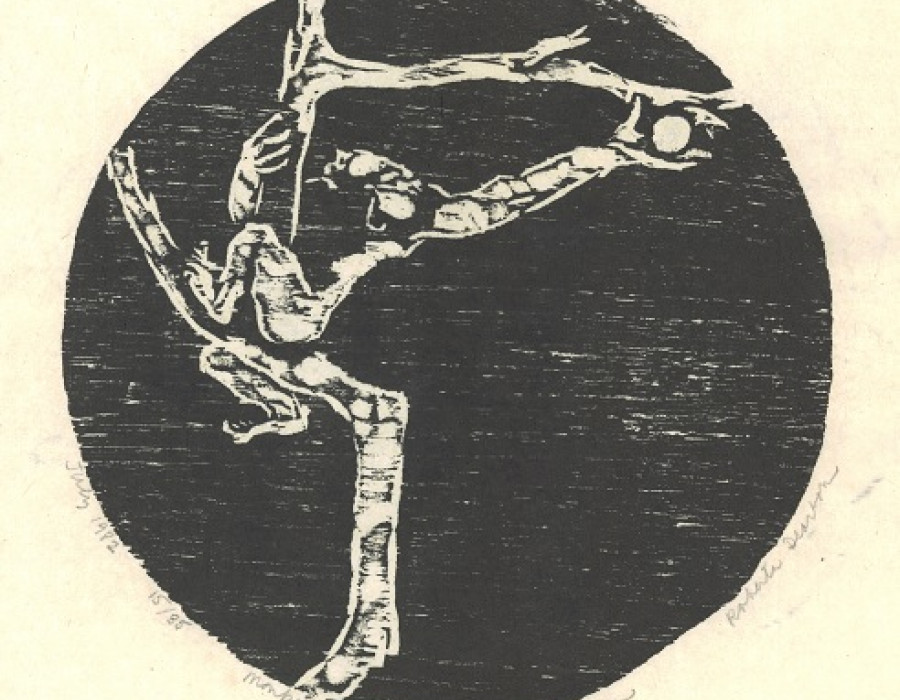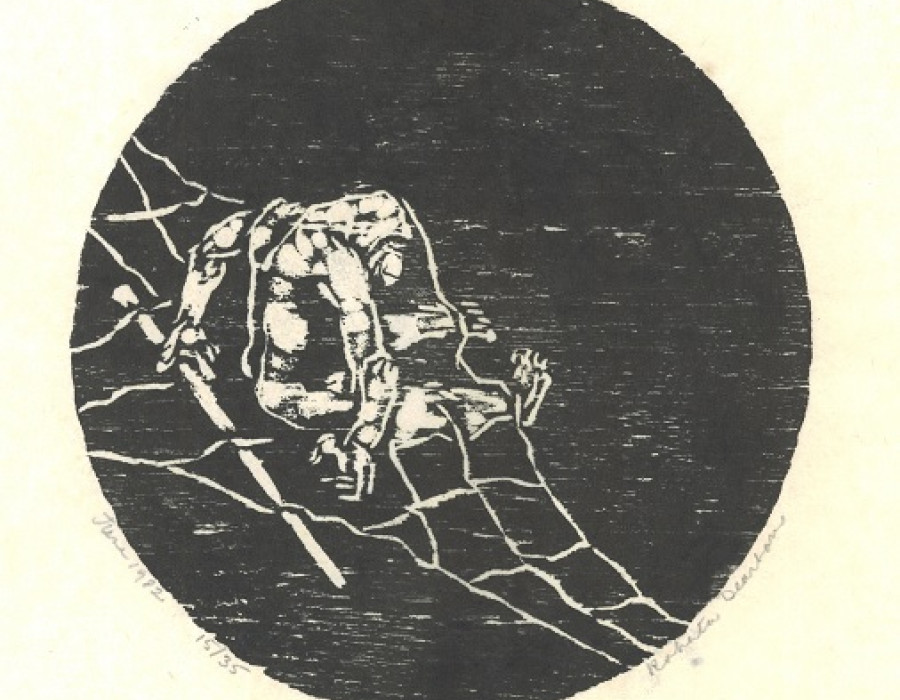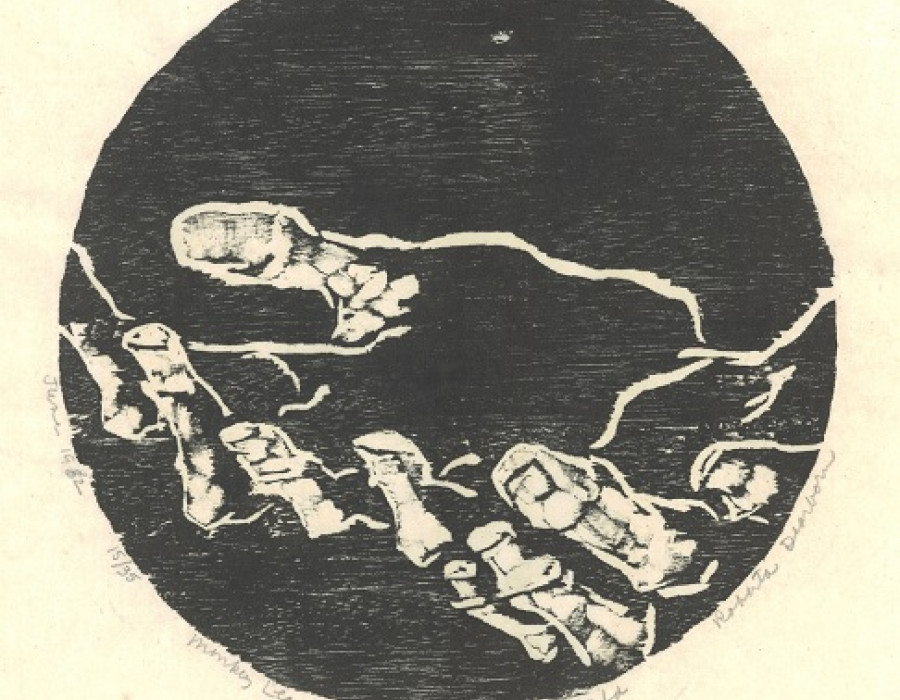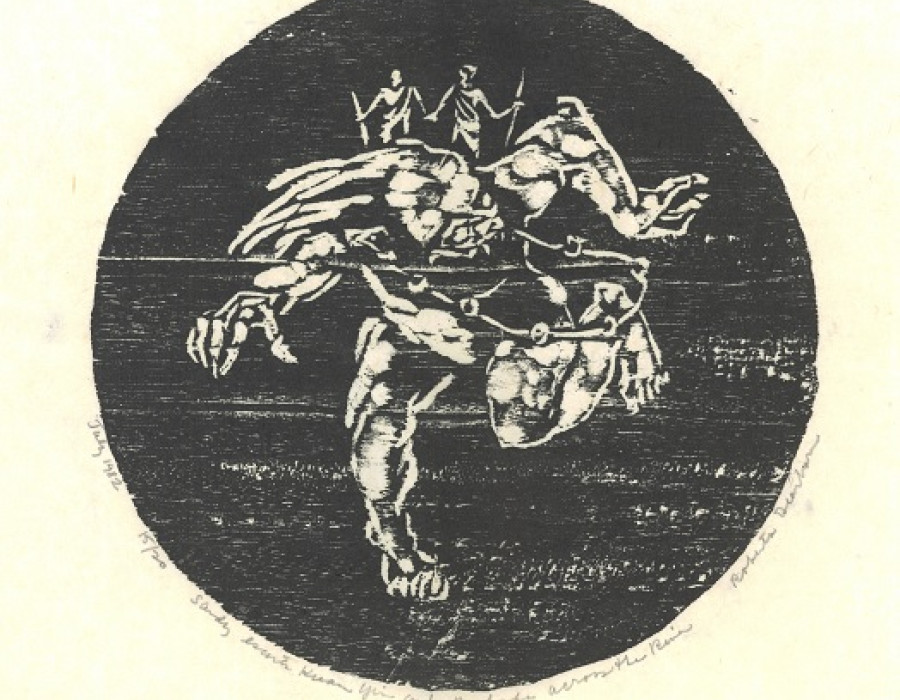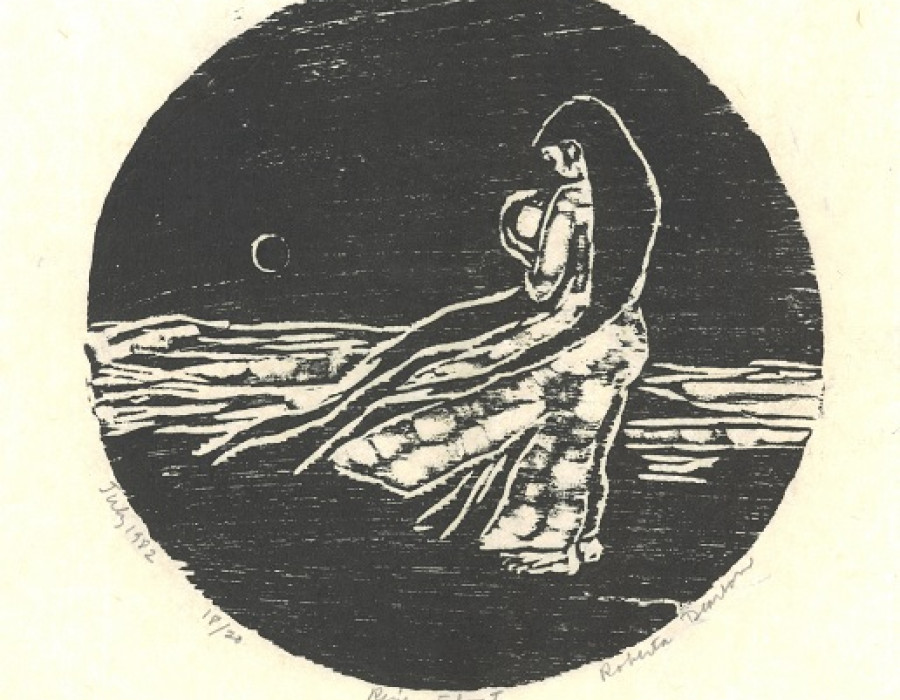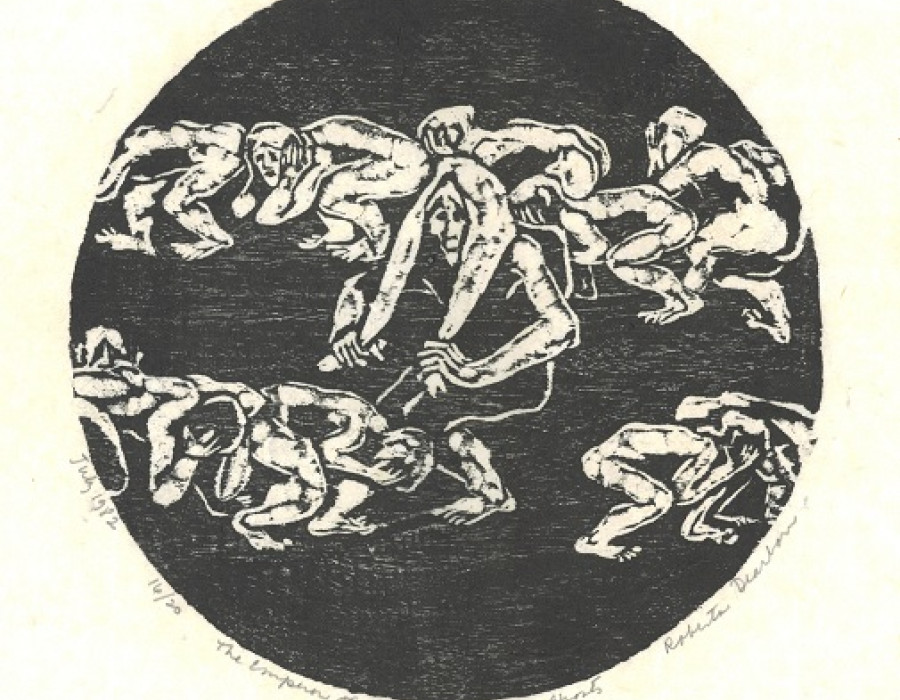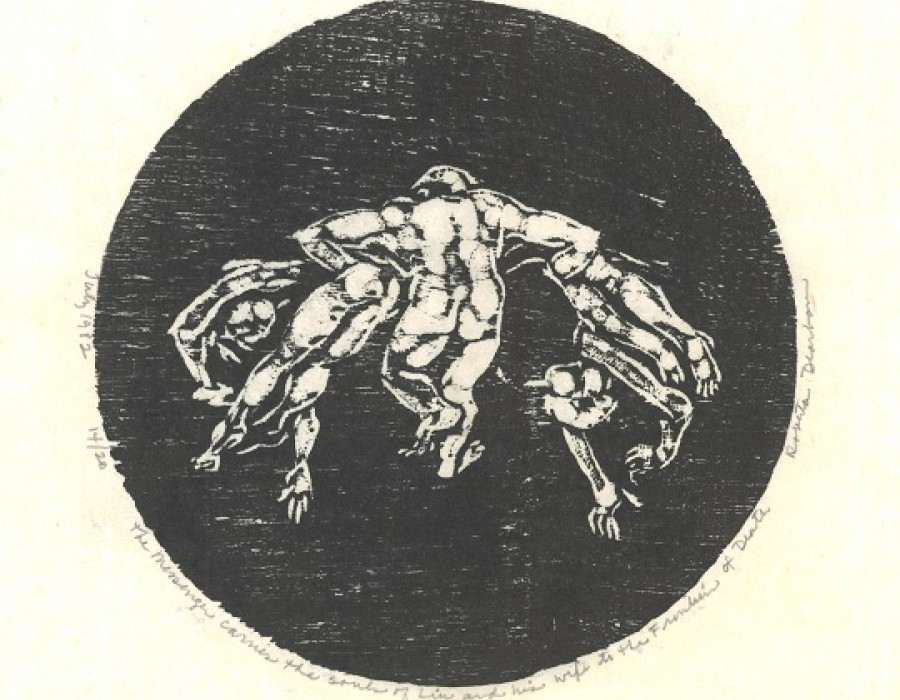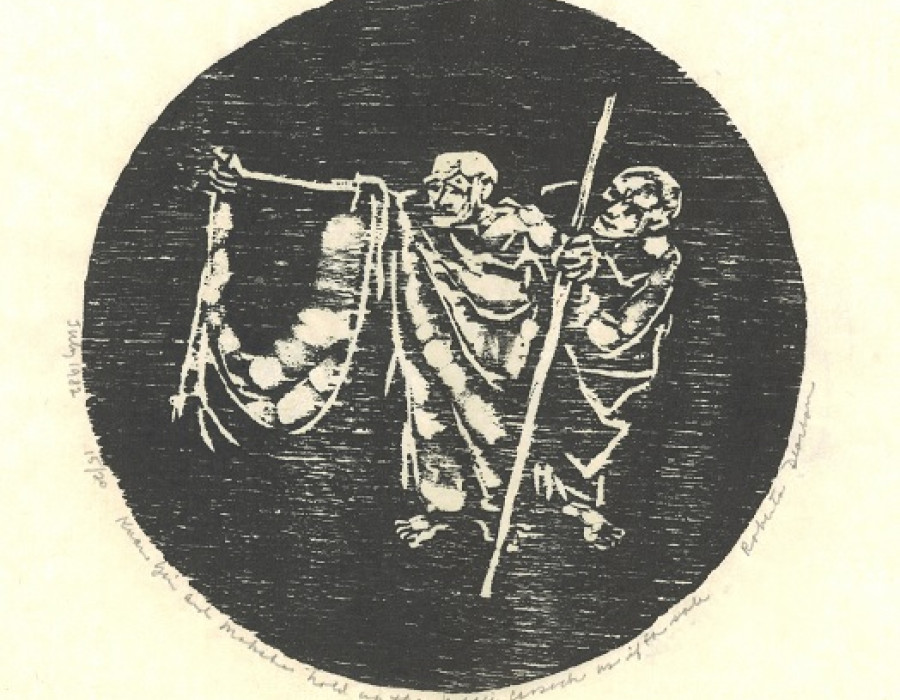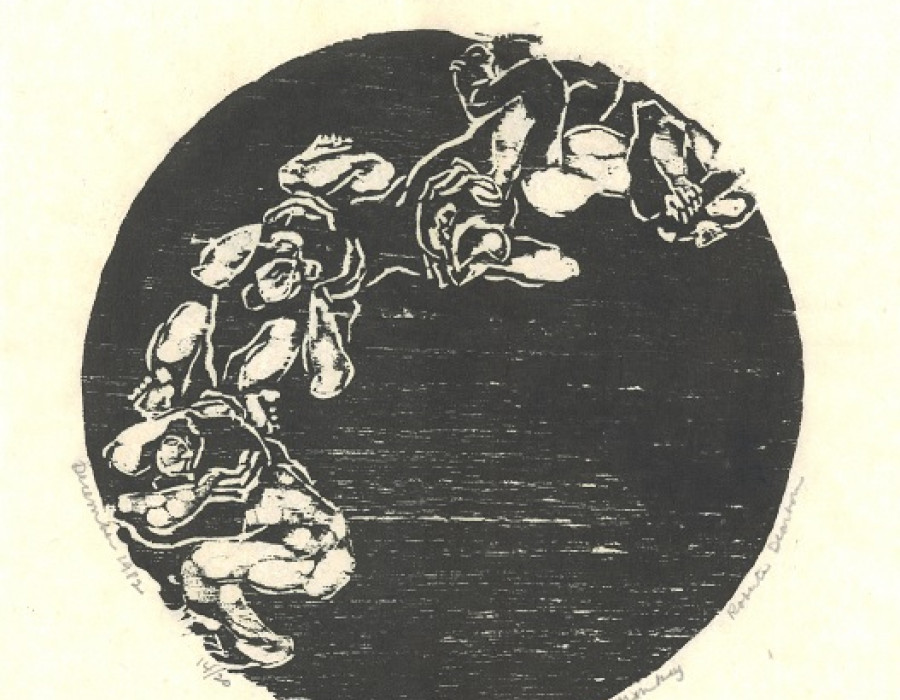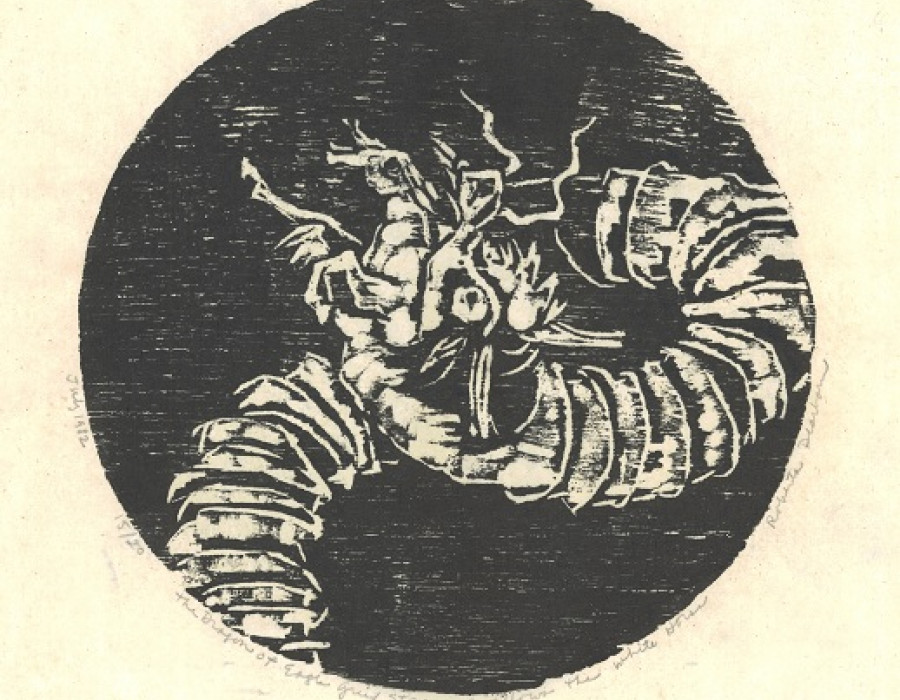
Martin Goodson
Monkey | Chapter 11
Stories Retold: Journey to the West
In this Episode, the Emperor faces a trial by the Judges of Death for killing the Dragon King in his dream.

When the Emperor opened his eyes, he found himself in a wild countryside. Standing up, he looked around the featureless landscape and up at the grey skies, and shuddered: “So this is what it’s like to be dead!”
Hardly had he uttered this exclamation, when he heard a voice calling him: “Great Emperor, come this way … Great Emperor of Tang, come this way.”
A short distance away, by the side of a road, knelt a man, who cried: “I beg the Emperor’s forgiveness for not having met him earlier!” This man turned out to be the very judge of the dead to whom Wei Cheng had referred, and to whom he had written the letter.
The judge explained that the Emperor had been expected: a senior judge had sent demons to arrest him for breaking his promise to the Dragon King and not saving his life.
As they were speaking, a sudden trumpet blast drew their attention to a group of soldiers rushing along the road towards them, carrying streaming banners. When they came to a halt in front of the Emperor, the senior officer stepped forward and produced a scroll – an arrest warrant for the Emperor. He was to appear immediately before the court of the dead to face charges laid against him by the Dragon King.
The Emperor went quietly, accompanied by the judge. As he entered the capital of the land of the dead, he saw restless souls milling about the streets and squares. They wept and implored the Emperor to help them. The Emperor saw three of his brothers, who had predeceased him, and who now came rushing towards him begging for his help to return to Earth for the sake of the family. The Emperor, who sought to avoid them, turned his head away; the soldiers pushed back the unquiet dead.
They soon arrived at the courthouse, and the Emperor was ushered in to take his place in the dock. The august judges of the dead filed in solemnly and silently, taking their seats before the Emperor accompanied by scribes and lesser officials carrying piles of paperwork.
The senior judge addressed the Emperor, telling him that there was no need to stand on ceremony. They were both kings in their respective realms of light and darkness, and it was a great shame that the Emperor had to face the court; but the law was the law, and everyone was subject to it.
The Emperor explained the circumstances leading up to the death of the Dragon King – how he had sought to engage his minister in a game of chess to distract him from his duty. He explained that he was unaware that time was different on Earth and in Heaven, and that the few seconds in which his minister had fallen asleep would be enough time in which to execute the Dragon. The Emperor also made the case that, after all, the Dragon King was guilty of a crime against Heaven – and the orders had come from the Jade Emperor himself.
The judges nodded in agreement, and after a short deliberation found there was no case for the Emperor to answer to. A judgment was reached: the Dragon King’s fate had been written down a long time ago. He could not return to his old life, and would have to undergo rebirth.
The senior judge called for the book of long life, wherein the length of life for every mortal is written. Having perused the manuscript, he raised his eyebrows and said: “I see that you have another twenty years of life to live on Earth. We have detained you long enough. You are free to go.”
The Emperor was very pleased, as was the court: justice was seen to have been done. The Emperor enquired of the senior judge as to the life expectancy of his family. After further consultation with the book, the judge replied that they all appeared to have an adequate number of years before them – except for the Emperor’s younger sister, who would be dying very shortly. The Emperor thanked the judges and asked them if he could send them a gift. The judges replied that melons from the south had always been a favourite delicacy; the Emperor said he would note this, and have some sent as soon as he returned.
The Emperor thought: “I’m returning through the streets once again, faced with pitiable souls.” Upon closer inspection, he could see that some of them had no heads, while others had mangled limbs – the results of battles and wars. The officer who accompanied him explained that these were the souls of those who had no one to offer them proper prayers for the dead, and therefore they were lost. “These are the hungry ghosts,” said the officer. “If you give them money, they will leave you alone.” The Emperor explained that he had come empty-handed, but the officer told him that there was a moneylender in the Emperor’s own capital, Chang-an, who had credit with those in the land of the dead. If the Emperor was willing to repay the debt to the moneylender, the officer would gladly lend him silver to distribute to these poor hungry ghosts. This was done. The Emperor also promised that, when he returned, he would pay for prayers, so that these lost souls could be saved.
Back on Earth, the funeral of the Emperor was just underway; it gave everyone quite a fright when he suddenly sat bolt upright in his coffin. Several members of the court fainted, and had to be revived. But once everybody realised that the Emperor had indeed returned to life, there was great joy.
A few days later, the Emperor discharged his debt to the moneylender and issued an edict asking for a volunteer to go to the land of the dead with the melons promised to the senior judge of that realm. A wealthy man stepped forward and declared that he would be happy to run this errand. He explained that his wife, whose name was ‘Blue Lotus’, had committed suicide when the man rebuked her over some trivial matter. Full of guilt and contrition, he said he was planning to commit suicide anyway.
The Emperor provided the pair of melons, which the wealthy man popped into his sleeve before swallowing some poison. Arriving at the court of the dead, he presented the melons to Yama, the senior judge, who was very pleased that the Emperor had sent them so promptly. Blue Lotus was sent for, and when Yama consulted his book, he saw that both she and her husband had many years of life on Earth before them.
Blue Lotus stepped forward and said: “My Lord, it is many years since I passed, and I do not have a body to return to. What can be done?”
One of the judges stepped forward and reminded the assembly that the Emperor’s youngest sister was soon to die; could not Blue Lotus have that body? This idea was deemed excellent, and gained everyone’s approval.
If you want to know the manner of their return to life, you must listen to what is told in the next chapter.
© The Zen Gateway

